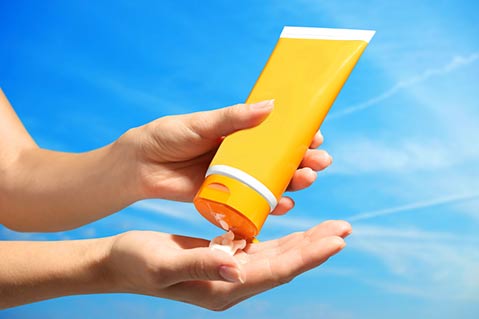Hawaii Bans Certain Types of Sunscreens
Hawaii's state legislature has passed a bill that bans sunscreens containing chemicals that can reportedly damage coral reefs – a new regulation that could impact sales of branded sunscreen.
Senate Bill 2571, passed on Tuesday, prevents the sale and distribution of sunscreen that has oxybenzone and octinoxate, unless prescribed by a licensed healthcare provider. If Governor David Ige signs the legislation into law, the prohibition would take effect Jan. 1, 2021.

Should the ban become law, promo distributors and suppliers could no longer provide sunscreen containing the blacklisted chemicals in the Aloha State. What's more, the Hawaiian ban could resonate to the U.S. mainland, possibly influencing some would-be buyers of branded sunscreen to seek natural options that are perceived as better for the environment – or to avoid purchasing sunscreen altogether in fear their brand will be perceived as a polluter.
Found in popular sunscreen brands like Coppertone and Hawaiian Tropic, oxybenzone and octinoxate contribute to coral bleaching, studies show. For example, a recent study from the Archives of Environmental Contamination and Toxicology found that chemicals in sunscreen kill coral and result in DNA damage in larval and adult stage coral. The impact on DNA limits coral's ability to grow and develop healthily. Coral bleaching was reportedly a cause behind widespread destruction of Australia's Great Barrier Reef. According to researchers, about 14,000 tons of sunscreen glop onto coral reefs annually. Sunscreen concentrations were found to be among the highest in the world on the beaches of Hawaii and the U.S. Virgin Islands.
Certain environmental organizations praised legislators for passing the bill.
"Hawaii's reefs have been slowly dying over the past 20 years, and that death spiral has been accelerating with the impact of El Niño-induced mass bleaching events and increased local pollution impacts from both tourism and development," Craig Downs, the executive director of the Haereticus Environmental Laboratory, told The New York Times. "Everyone has come together to support this legislation, from local nurses and doctors, to resorts and airlines, as well as the entrepreneurial spirit of new sunscreen companies to supply reef-safer products."
Of course, the ban had opponents, too. Traditional sunscreen manufacturers pointed out that the chemicals are FDA-approved and important ingredients for protecting people from skin cancer. Ban opponents also included the Hawaii Medical Association. The association expressed worry that the prohibition could encourage people to reduce the degree to which they wear sunscreen – a concern given the heightened risk for skin cancer that comes with not using sunscreen.
Forbes reports that mounting public pushback against sunscreens containing oxybenzone and octinoxate has opened the door for a niche market focused on natural sunscreens made in Hawaii. "Tourists and locals on the islands can find Kōkua Sun Care Hawaiian Natural Zinc Sunscreen, Mama Kuleana Reef, and the mainland All Good products," wrote Geologist Trevor Nace for Forbes. Of course, chemicals found in sunscreens are far from the only pollutant causing problems for coral reefs. Ocean warming, agricultural runoff and sewage dumping also are weakening and killing reefs, research shows.